MercoPress. South Atlantic News Agency
Tag: Alexander Tombini
-
Friday, June 1st 2012 - 06:35 UTC
Greater transparency and social communication for Brazil’s central bank
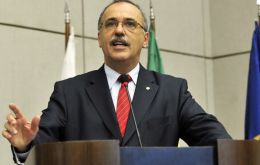
Brazil’s central bank created a post on its board to improve transparency and communications two weeks after President Alexandre Tombini said it’s increasingly important for central banks to provide “forward guidance” to the market.
-
Monday, May 14th 2012 - 05:38 UTC
“Interest rate has been falling not to please Dilma”, says Brazil Central bank chief
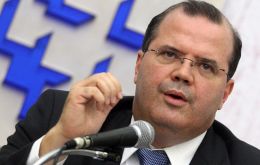
The central bank remains independent and the current interest-rate cutting cycle is driven by specific economic factors, not pressure from President Dilma Rousseff, Brazil’s central bank President Alexandre Tombini said in an interview in the Sunday edition of O Estado de S. Paulo.
-
Thursday, April 19th 2012 - 04:59 UTC
Brazil lowers basic rate to 9%, sixth straight reduction and more could come

Brazil lowered its benchmark interest rate to a near-historic low of 9% on Wednesday, as expected, but the central bank surprised with hints that more cuts may follow to revive Latin America's largest economy.
-
Tuesday, March 13th 2012 - 07:26 UTC
Brazil extends 6% tax on foreign loans and bonds to help weaken the Real
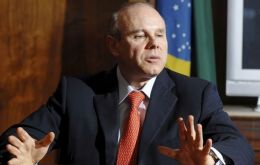
Brazil extended on Monday a 6% tax on foreign loans and bonds issued abroad by local companies to include lending with duration of as long as five years, the third measure taken this month to weaken the Real. Since March 1, the currency has weakened 5.6%.
-
Thursday, March 8th 2012 - 06:06 UTC
Brazilian surprise: basic rate down to 9.75%, lowest in years
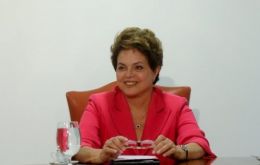
Brazil’s Central bank on Wednesday surprised analysts by accelerating the pace of interest rate cuts, bringing borrowing costs to 9.75%, below 10% for only the second time on record as it seeks to revive growth.
-
Tuesday, March 6th 2012 - 17:06 UTC
Brazil growth in 2011, slowest since 2003, but 2 million jobs were created
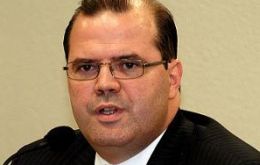
The Brazilian economy last year registered its second-worst performance since 2003 as higher borrowing costs and a currency that rallied to a 12-year high led it to under-perform emerging-market peers China and India.
-
Tuesday, February 28th 2012 - 05:02 UTC
Brazil will cut the benchmark interest rate “to less than 10%” this year

Brazilian central bank survey showing interest rate levels are inconsistent with the country’s inflation target won’t alter policy makers’ strategy of lowering borrowing costs further, bank President Alexandre Tombini said.
-
Saturday, February 11th 2012 - 07:42 UTC
Brazilean consumer prices increase 0.56% in January, fastest in nine months

Brazilian consumer prices rose at the fastest pace in nine months in January on higher transport, food and drink costs. Prices increased 0.56% from December, the national statistics agency said in a report distributed in Rio de Janeiro.
-
Thursday, January 19th 2012 - 05:57 UTC
Brazil cuts basic rate to 10.5% and signals further reductions in the future
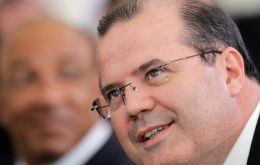
Brazil’s central bank indicated on Wednesday it will keep cutting interest rates at the current pace after it reduced borrowing costs by a half-point to 10.5%, for a fourth straight meeting.
-
Wednesday, November 30th 2011 - 23:08 UTC
Brazil cuts basic rate by half a point to 11% and says inflation converging to target
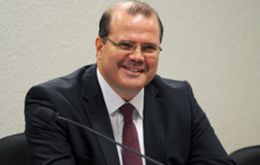
Brazil’s central bank cut borrowing costs by half a point for a third straight meeting as a global economic slowdown threatens with a slump in domestic demand. The bank’s board voted on Wednesday unanimously to reduce the benchmark Selic rate to 11% from 11.5%, as had been anticipated by markets.
